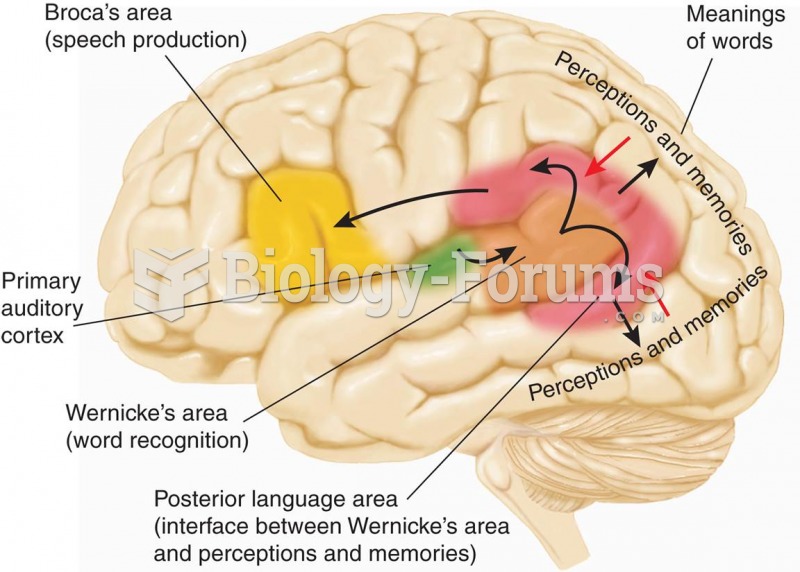|
|
|
Approximately 25% of all reported medication errors result from some kind of name confusion.
Cocaine was isolated in 1860 and first used as a local anesthetic in 1884. Its first clinical use was by Sigmund Freud to wean a patient from morphine addiction. The fictional character Sherlock Holmes was supposed to be addicted to cocaine by injection.
Drying your hands with a paper towel will reduce the bacterial count on your hands by 45–60%.
Bacteria have flourished on the earth for over three billion years. They were the first life forms on the planet.
All adults should have their cholesterol levels checked once every 5 years. During 2009–2010, 69.4% of Americans age 20 and older reported having their cholesterol checked within the last five years.







